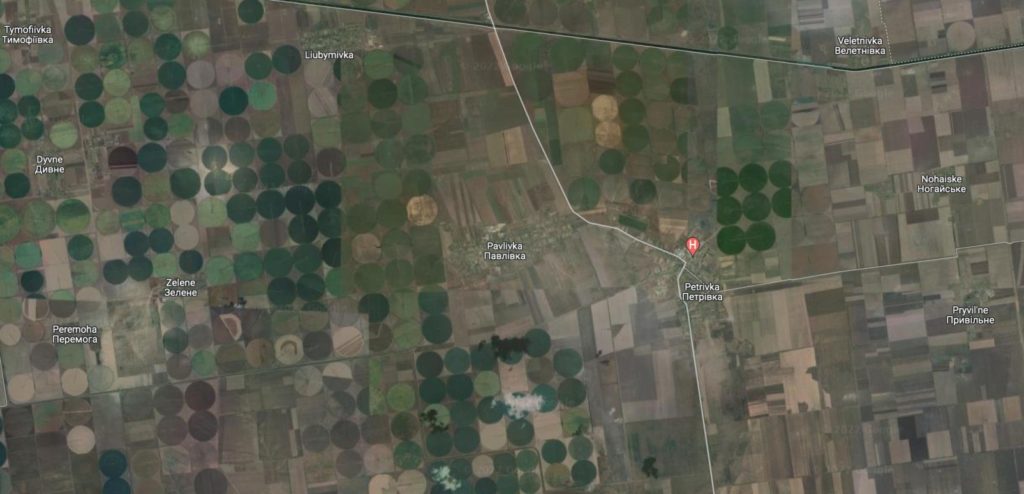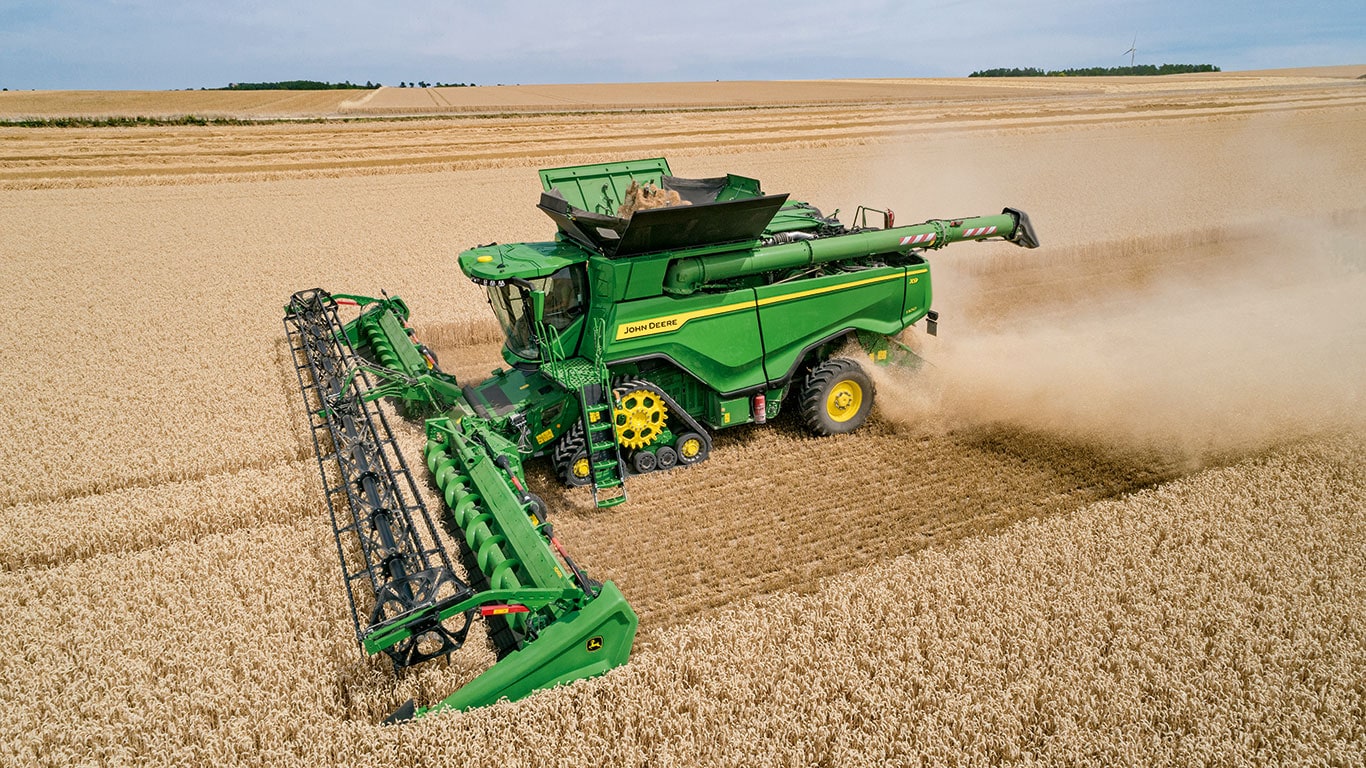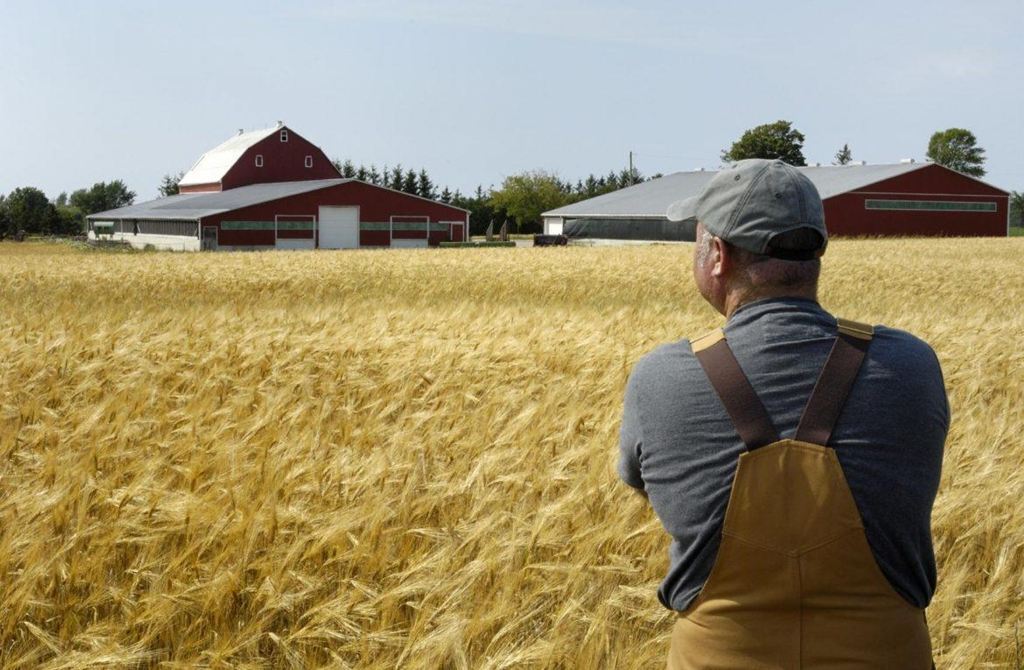“Give us your property or you will end up beheaded”
Russian occupying forces continue to illegally appropriate the estate of Ukrainian private farms – confiscating products stored in enterprise warehouses and forcing employees to work for them. Those who do not comply are threatened with physical violence. Agravery, the Ukrainian information agency on agriculture, and the All-Ukrainian Agrarian Council (VAR), reported these events on 21 April 2022.
An agrarian from Kherson Oblast and member of VAR, Albert Cherepakha is the owner of the enterprises Agro-Commonwealth LLC and PE Commonwealth-South. He has 20,000 hectares (ha) in cultivation (nearly 50,000 sq acres). Cherepakha told Agravery that Russians seized his enterprises:
“Groups of armed Chechens who called themselves Kadyrovites entered the territory of my economic units in Henichesk district on 11-12 April. We have bases in the villages of Chonhar, Chervone, and Pavlivka, the land bank is about 20,000 ha. The armed men said that now all the property of the company belongs to them. The heads of the divisions were warned that in case of property losses they would end up beheaded.”
Cherepakha asserts that the groups of invaders are under the leadership of separatist S. Nemitulaev. Currently, employees of the company are forced to work on the land for the benefit of the occupiers.
“The invaders began to manage the production processes at the enterprise. They gave a command to the workers to carry out sowing [and] to prepare an application for the necessary materials. To do this, they began to sell and export products that were stored in warehouses,” adds the farmer.
Cherepakha repeated emphatically that the groups of Russian invaders who seized his property are under the leadership of Nemitulaev and that his employees are forced to work the land for the benefit of the Russian occupiers.
While stating that the plunderers from the Russian military began to sell and export the company’s products stored in warehouses, he reveals that Russians forced the workers to carry out sowing and to prepare applications for the necessary materials.
Although open and attributed statements have appeared only now, Ukrainian MP Serhiy Khlan had reported that Russian occupiers had intimidated and blackmailed farmers, as well as seized their property as early as 17 March:
“I keep in touch with many farmers in Kherson Oblast. Many are intimidated, many are afraid to comment, but some admit that they are forced to sign a ‘cooperation agreement.’ Now there is total coercion to cooperate with the occupiers.
Under the barrels of machine guns, and the threat to the lives of children and families, they [farmers] are forced to sign a cooperation agreement in order to ‘help’ the new government. That is, they [Russian military] simply take [the farmers’] money, or come to their homes, or summon them to the commandant's office,– some farmers were abducted. In addition, they [Russian military] demand [fields be sowed] to provide for their army.”
The Russians forced Kherson farmers to sow only grain and sunflower, and only if the farmers agreed to hand over 70% of the future harvest to the occupiers, without any form of payment. Most farmers have refused to do so, the National Center for Countering Disinformation reported on 24 April.
Ukrainian grain is stolen and transported to Russia through Crimea
Residents of the temporarily occupied Crimea have recently noticed an increase in the number of freight trains with "grain" marked on them. All of these trains, according to the 21 April report of the Ukrainian ombudsperson Liudmyla Denisova, belong to the North Caucasus Railway.
Denisova added that Crimea itself does not have such huge stocks of grain for export, and that their trains go to railway stations bordering Kherson Oblast. She reiterated that Kherson and Zaporizhzhia oblasts produce large grain crops and have a large number of granaries.

A lot of Ukrainian fields are located in Kherson Oblast. Screenshot of a part of Kherson Oblast from Google Maps. The village of Pavlivka, mentioned by Cherepakha, is in the center.
Moreover, residents of Sevastopol previously noticed that the sea terminal for grain trans-shipment had started operating.
Meanwhile, the measure of reserves for such a shipment simply does not exist in the Crimea. This was reported by the Center for Countering Disinformation, operating under Ukraine’s National Security and Defense Council. The center also revealed that Russian occupying forces looted the Novooleksiyivskyi grain elevator and exported reserves to Crimea.
Earlier, five ships loaded with tens-of-thousands of tons of Ukrainian grain were stolen from the Berdiansk seaport. Oleksandr Starukh, head of the Zaporizhzhia Regional Military Administration, expressed this on Ukrainian television on 20 March.
A few days later Russia legalized marauding at the state level. On 27 April the Legislative Assembly of the Krasnodar Krai in Russia published a report called “It is planned to replentish the fund of agricultural products with supply from Ukraine.”
“The deputies at the meeting almost unanimously supported the decision to import grain from Kherson Oblast, which was partially taken under the control of the Armed Forces of Russia as part of the Special Operation on the territory of Ukraine,” the report states.
The Krasnodar Assembly says that marauding Ukrainian agricultural products is “a part of the implementation of the strategy of state support for the agro-industrial complex.” The report also discusses the difficulties of transportation of the looted agricultural products. These are not only grain. As the report goes on:
“Since there is only one cucumber production plant in the [Krasnodar] region, and the lack of other vegetables and grain crops as a result of the introduction of foreign sanctions is felt acutely not only in the Krasnoyarsk Krai, but everywhere at the federal level, the expropriation of last year’s and this year’s crop surpluses from farmers in the Kherson Oblast will become a tool to assist small businesses, consumer cooperatives.
Committee Chairman Vladislav Zyryanov admits that colleagues from other regions will be able to successfully implement such experience in the future.”
However, on 28 April, the Assembly informed that their website was hacked and deleted the news. It is still available the webarchive.
At the same time, merchandise from Crimea “flooded Kherson,” according to an anonymous activist who has stayed in the city. She states that markets are almost the only places where it is possible to buy food in Kherson – it is possible to pay with cash, only after having stood in the queue for 5-6 hours. The activist reiterated:
“The issue of de-occupation of Kherson Oblast is a matter of food security. If the de-occupation is not carried out in the near future, Kherson water and food will strengthen Russia's position in Crimea.”
Agricultural machinery is looted, too
DT.UA journalists found out that Kadyrovites stole John Deere combines in Melitopol. Journalist Valentyna Samar recorded one of the most high-profile looting crimes in Melitopol.

Three new combines, a tractor, and three drills worth a total of 1.5 million euros were stolen from the exhibition site of Agrotek-Invest – the official dealer of the American agricultural machinery manufacturer John Deere in Ukraine. In addition, 20 tons of brand lubricants were stolen and taken to Russia.
The company established that the looters from the Russian military transported the machinery to Chechnya and set it up in the village of Zakan-Yurt near Grozny, according to Samar.
“It is the home village of Chechen PM Muslim Khuchiyev and his brother Tamerlan Khuchiyev, who heads the district administration. The latter is also known for being the executive director of the Akhmat Kadyrov Foundation for 11 years," Samar wrote.
Instead, Russian occupying forces are transporting “humanitarian” canned food to Melitopol in trucks covered with portraits of Akhmat Kadyrov. “Beneficial ‘charity,’ however," Samar concludes.
Artificial hunger again? For Ukraine or for the world?
Russian propagandist Solovyov on his show on TV station "Russia 1" said Russia plans to continue stealing Ukrainian grain. Beforehand, Solovyov presented the blackmail and coercion of Ukrainian farmers to work for Russian occupiers as “we have sown everything in Kherson Oblast”:
“We have sown everything in Kherson Oblast, and we will collect it. And why should we waste grain? Belarus will be full and satisfied. Russia will be full, and we will help Armenia. And Europe? … It is dangerous to be rude to us.”
As Russia’s war against Ukraine escalates, the threat of hunger looms over the world
Both Denisova and the National Center for Countering Disinformation drew parallels between these events and coercive transportation of grain out of Ukraine in the 20th century which caused hunger all over Ukraine – the most heinous of these was the artificial famine perpetrated by Stalin, the Holodomor of 1932-33, which killed 4 million people or even more.
All grain and food storages, as well as livestock and any type of consumables, were forcefully seized from village peasants and sold abroad at record volumes. Without food, millions did not survive the harsh winter and starved to death.
In the present context, vast seizures of Ukrainian grain export could go so far as to cause hunger worldwide. As of 2019-2020, Ukraine became the world’s second-largest exporter of grain. In 2021, agricultural exports increased by 25%.
Now, the Ukrainian grain harvest for 2022 is likely to be about 20% lower than 2021, due to ruined and reduced sowing tracts, which are but one gruesome consequence of the Russian invasion.
Russia’s war destroys Ukraine’s economy, spurs global food and economic crisis
Currently, Russian occupying forces control or block Ukrainian ports that previously accounted for 85-95% of grain transportation. At the end of March, Ukraine began transporting grain by train. As well, Latvia has agreed to help Ukraine with exports via Latvian ports.
Yet, until Kherson Oblast is de-occupied, the Russian military will continue stealing grain from Ukrainian enterprises, robbing farmers’ property, and destroying Ukraine’s railway infrastructure — right now the only possible way for transporting goods from Ukraine. In order to de-occupy the oblast, Ukrainian Armed Forces and government say that more offensive weapons are needed.




